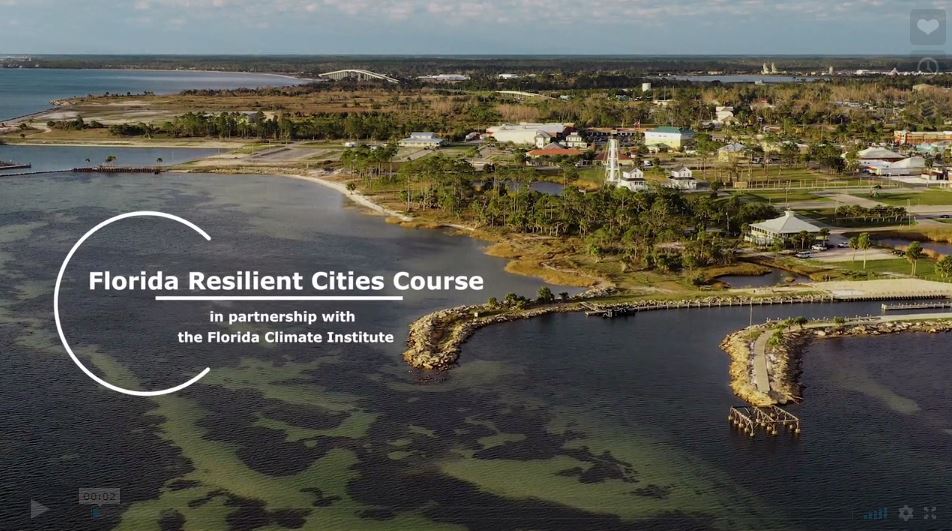 |
| Watch the 2020 Spring Break Field Course video |
This multi-disciplinary field-course introduced students to the challenges that communities face following disasters to recovery effectively and achieve long-term resilience. Florida communities need to adapt to the changing environment and to end the disaster/rebuild cycle through the development of effective community design, public policy, and applied science. The course, in partnership with the Florida Resilient Cities project, connected a range of disciplines through collaborative research and field-based exploration in the City of Port St. Joe where the ravages of Hurricane Michael are still being felt. Lectures, readings, and research prepared students for a one-week intensive spring break workshop in the City during spring 2020.
In the first part of the semester, students were introduced via lecture to fundamentals of the planning & design, law & policy, engineering, and communications challenges facing coastal cities in relation to sea-level rise, storm risk, and other factors that affect their long-term resilience. The Panhandle city of Port St. Joe is this semester’s case study community and host students for a spring break field study. The course focused on elements of long-term recovery and community resilience following a catastrophic hurricane. Working in interdisciplinary teams, students undertook a scenario analysis exercise in which they use knowledge gained from the readings and lectures to envision how Port St. Joe not only recovers from Hurricane Michael but builds back better and more equitably and resiliently than before. From this scenario analysis exercise, students will develop alternative policy, design, infrastructure, and communication paths that this coastal city might pursue to address several discrete challenges and will assess the efficacy of these various paths.
During spring break, students spent five intensive days in Port St. Joe visiting relevant sites and hearing from experts in a variety of fields to inform their understanding and their scenario analysis and associated work product.
Faculty Core Team: Jeff Carney, Architecture; Cleary Larkin, Architecture; Tim Mclendon, Law; Corene Matyas, CLAS; Alyson Larson, Journalism; David Prevatt, Engineering; Thomas Ruppert, Law; and additional invited speakers
Course Admin and Coordinator: Carolyn Cox, Florida Climate Institute
Final Adaptation Strategy Proposals
Team 1 – Regional
Team Proposal (PDF)
Online presentation: https://spark.adobe.com/page/aEBUo87XjD3ga/
Team 2 – Park System
Team Proposal (PDF)
Online presentation: https://spark.adobe.com/page/R3LIhRlc9GIPE/
Team 3 – Urban Design
Team Proposal (PDF)
Online presentation: https://spark.adobe.com/page/yx9EygDU6LARF/
Team 4 – Housing and Neighborhoods
Team Proposal (PDF)
Online presentation: https://spark.adobe.com/page/vQwDv3094iqXX/











